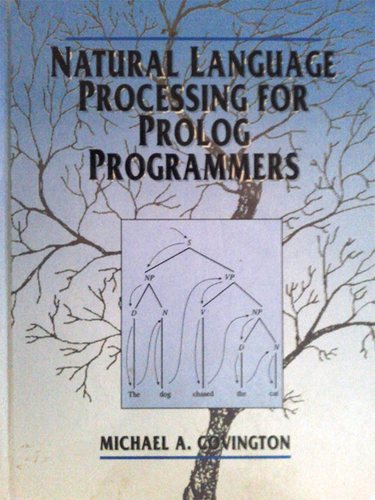
Natural Language Processing for Prolog Programmers
by Michael A. Covington
Publisher: Prentice-Hall 1994
ISBN/ASIN: 0136292135
ISBN-13: 9780136292135
Number of pages: 361
Description:
Designed to bridge the gap for those who know Prolog but have little or no background in linguistics, this book concentrates on turning theories into practical techniques. Coverage includes template and keyword systems, definite clause grammars (DCGs), English syntax, unification-based grammar, parsing algorithms, semantics, and morphology.
Download or read it online for free here:
Download link
(32MB, PDF)
Similar books
 A Maximum Entropy Approach to Natural Language Processing
A Maximum Entropy Approach to Natural Language Processingby A. L. Berger, S. A. Della Pietra, V. J. Della Pietra - Association for Computational Linguistics
The authors describe a method for statistical modeling based on maximum entropy. They present a maximum-likelihood approach for automatically constructing maximum entropy models and describe how to implement this approach efficiently.
(10188 views)
 Notes on Computational Linguistics
Notes on Computational Linguisticsby Edward Stabler - UCLA
What kind of computational device could use a system like a human language? This text explores the computational properties of devices that could compute morphological and syntactic analyses, and recognize semantic relations among sentences.
(16216 views)
 Speech and Language Processing
Speech and Language Processingby Dan Jurafsky, James H. Martin - Stanford University
This text takes an empirical approach to the subject, based on applying statistical and machine-learning algorithms to large corporations. The authors describe a unified vision of speech and language processing. Emphasis is on practical applications.
(7073 views)
 Natural Language Processing for the Working Programmer
Natural Language Processing for the Working Programmerby Daniël de Kok, Harm Brouwer
We will go into many of the techniques that so-called computational linguists use to analyze the structure of human language, and transform it into a form that computers work with. We chose Haskell as the main programming language for this book.
(16368 views)